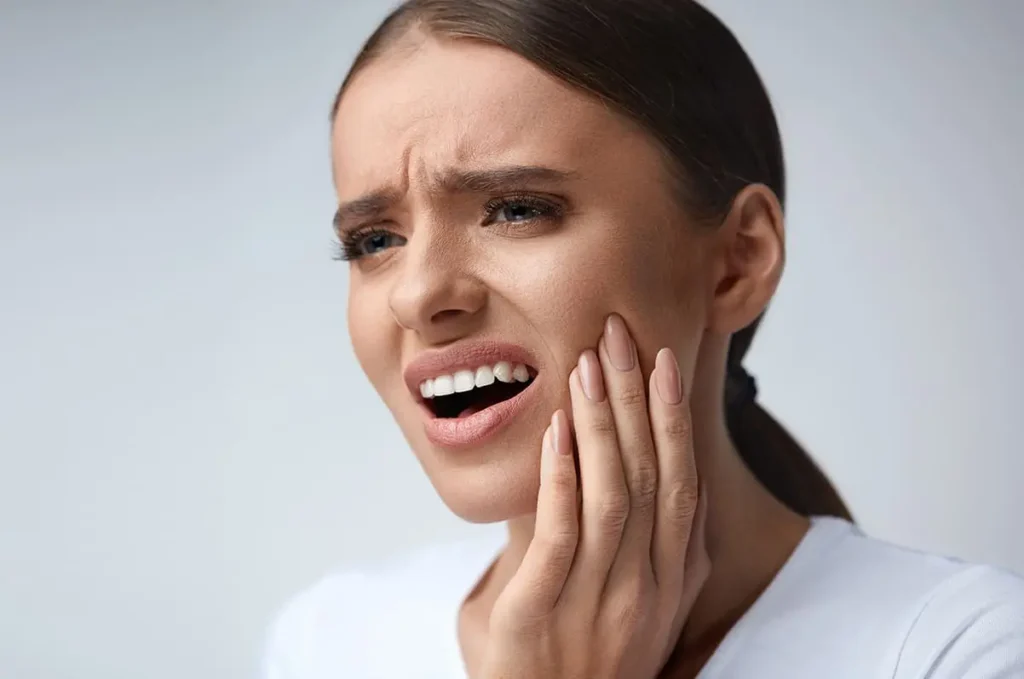Waking up with tooth pain is not only uncomfortable but can also be a signal of underlying health issues. Morning tooth pain can stem from a variety of causes, ranging from physical strain on your teeth to systemic conditions. Understanding the causes, diagnosis, and treatment options for this type of discomfort is essential in addressing the problem and finding relief.

Causes of Tooth Pain in the Morning
Bruxism
Bruxism, or teeth grinding, is a common cause of morning tooth pain. This involuntary habit, often occurring during sleep, can place excessive strain on your teeth and jaw muscles, leading to soreness and enamel wear.
Sinus Infection
Sinus infections, particularly when the maxillary sinuses are inflamed, can create pressure on the upper teeth. This pressure mimics toothache and worsens during the morning when congestion is at its peak.
Gum Disease
Gum inflammation caused by gingivitis or more severe periodontal disease can result in tooth sensitivity and discomfort, especially when left untreated.
Pregnancy
Hormonal changes during pregnancy can increase gum sensitivity and lead to periodontal discomfort, causing minor aches in the teeth, especially in the morning.
Sleep Position
Sleeping in certain positions can increase pressure on your teeth or jaw, especially if you sleep on your stomach or side with your face pressed against a pillow.
Overuse of Mouthwash
Excessive use of mouthwash containing acidic ingredients can erode enamel over time, leading to increased sensitivity and morning discomfort.
Trigeminal Neuralgia (Nerve Damage)
This chronic condition causes extreme nerve pain in the face, which can impact the teeth and trigger discomfort, typically felt as sharp or shooting pain.
Dehydration
Dehydration can result in dry mouth or insufficient saliva production, leaving your teeth vulnerable to sensitivity and bacterial activity overnight.
Stomach Acid and Frequent Vomiting
Acid reflux or conditions like bulimia that expose teeth to stomach acid can erode enamel, making them sensitive and prone to pain.
Acidic Foods
Consuming acidic foods before bedtime can weaken enamel and cause heightened sensitivity, particularly noticeable upon waking.
TMJ Disorder
Temporomandibular joint (TMJ) disorders can result in jaw and surrounding muscle strain, leading to discomfort in the teeth and facial region.
Cavities
Untreated cavities can cause sensitivity or pain that worsens overnight due to the absence of saliva flow, which helps protect teeth.
Impacted Tooth
Impacted teeth, such as wisdom teeth, can exert pressure on neighboring teeth and cause pain, often felt during the night or early morning.
Tooth Abscess
Dental abscesses are infections around the root of a tooth or in nearby gum tissue. These can lead to sharp and persistent pain, especially early in the day.
Diagnosis: Identifying the Source of Pain
Proper diagnosis of morning tooth pain typically begins with a visit to your dentist. Your dentist may conduct a physical exam, review your dental history, and use tools like X-rays to pinpoint the issue. Discussing your symptoms, lifestyle habits, and medical conditions can also help identify a possible cause. Depending on their findings, they may recommend further tests or refer you to a specialist.
Treatment and Relief Options to Ease Your Tooth Pain
Nightguards (for Bruxism)
Custom-fitted nightguards can help protect your teeth from damage caused by grinding or clenching during sleep.
TMJ Therapy
Specific therapies like exercises, massages, or splints can alleviate pain associated with TMJ disorders.
Sinus Treatment
Medications or sinus drainage procedures can relieve pressure from sinus infections, easing tooth discomfort.
Improving Sleep Posture
Adopting a back-sleeping position or using ergonomic pillows can reduce strain on your jaw and teeth overnight.
Managing Dry Mouth
Staying hydrated, using special moisturizers or mouthwashes, and avoiding alcohol and caffeine can combat dry mouth and morning sensitivity.
Treating Gum Inflammation
Professional dental cleanings and improved gum care can address issues caused by gum disease.
Treating Tooth Sensitivity
Fluoride varnishes, desensitizing toothpaste, or dental sealants can help reduce sensitivity by protecting weakened enamel.
Treating Abscesses and Cracked Teeth
Root canals, extractions, or other procedures may be necessary to address infections or repair damaged teeth.
Lifestyle Changes and Home Remedies
Stress Reduction Techniques
Engaging in relaxation methods such as meditation, yoga, or breathing exercises can help reduce bruxism caused by stress.
Warm Compresses
Applying a warm compress on the jaw can relax muscles, reduce TMJ discomfort, and ease tooth pain.
Over-the-Counter Pain Relievers
Non-prescription medications such as ibuprofen or acetaminophen can temporarily reduce inflammation and relieve pain.
Good Oral Hygiene Practices
Regularly brushing, flossing, and rinsing with fluoride mouthwash can prevent cavities, gum disease, and tooth sensitivity.
When Should You See a Dentist?
If your morning tooth pain persists for more than a few days or worsens over time, it is essential to seek advice from a dentist. Sudden, sharp, or severe pain should also prompt immediate professional attention, as it may indicate a serious condition requiring urgent treatment. Regular checkups and prompt care can ensure that problems are addressed early, reducing the risk of complications down the line.
Regular Dental Exams and Cleanings Can Help Reduce Morning Tooth Pain
Routine dental visits play a vital role in keeping your mouth healthy and minimizing oral discomfort, including morning tooth pain. Professional cleanings remove plaque and tartar, reducing the risk of gum disease and cavities. Additionally, your dentist can monitor for early signs of issues like bruxism or TMJ problems, providing treatments to prevent further complications.
